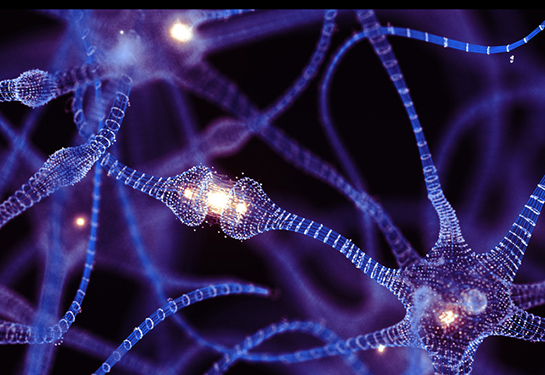CAR T-Cell Therapy
CAR T-cell therapy offers new hope to people with cancer and other diseases that don’t respond to standard treatments. We offer extensive experience in this groundbreaking therapy.
Medically reviewed by Brian Jonas, M.D. on Oct. 12, 2023.
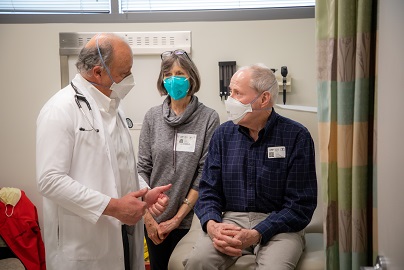
Leveling Up Your Immune System
CAR (chimeric antigen receptor) T-cell therapy reprograms your immune cells to better target diseases. Because it uses your immune system, it is considered a type of immunotherapy.
At UC Davis Comprehensive Cancer Center, we are regional leaders in the development and use of CAR T-cell therapy. Our new Malignant Hematology, Cellular Therapy and Transplantation Program offers advanced treatments and clinical trials. We are the first in the region to manufacture CAR T cells on site.
How Does CAR T-Cell Therapy Work?
Your immune system constantly monitors your body for potential threats. White blood cells called T cells are key to this process. All T cells have proteins on them called receptors.
To understand how the therapy works, it’s important to know the components involved:
T Cells and Antigens
T cell receptors and antigens fit together like a lock and key. T cell receptors will only latch on to — and destroy — the antigen they match.
Immune System
Sometimes, your immune system’s T cell receptors don’t recognize a cancer cell’s antigens. Other times, they can’t mount a response large enough to neutralize the threat.
Chimeric Antigen Receptors (CARs)
Scientists can now re-engineer T cells to have receptors that identify and match specific antigens. These CARs quickly target the disease and destroy it.
Request an Appointment
Our cancer specialists provide thorough evaluations and personalized treatment plans. Learn more about how to make an appointment at UC Davis Comprehensive Cancer Center.
Patients
New Patient Referral Office
916-734-5959
UC Davis Health Referring Physicians
For providers in UC Davis Medical Group or our Cancer Care Network
Physician Referral Center
916-734-5959
External Referring Physicians
For providers who are external clinicians
Referral Office
800-770-9261
It takes several weeks to complete CAR T-cell treatment. The process involves three main steps and then close monitoring by your medical team for more than a month. Our specialists identify any side effects so we can address them quickly and effectively.
-
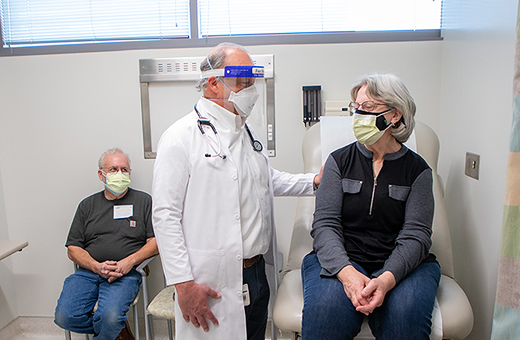
Collecting the T-Cells (Leukapheresis)
We draw blood from your arm with an IV over two to three hours as you sit or lie down. Your blood flows through the IV line into a special machine. This machine filters out the T cells and returns the blood to your body. We then refrigerate your T cells and send them to the UC Davis Health stem cell program.
-
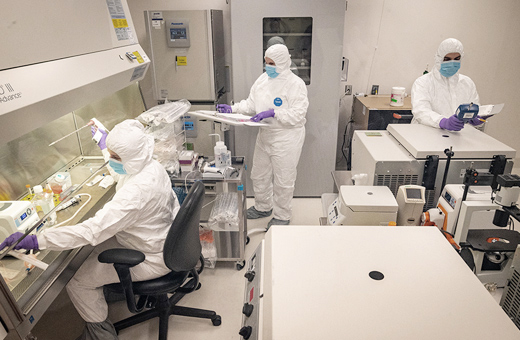
Making the CAR T Cells
In our lab, we add a gene to your T cells that matches their receptor to the specific disease you have. These CAR T cells then multiply over several weeks until we have millions. Because we engineer the CAR T cells on-site, they don’t have to be frozen, which helps maintain their quality.
-
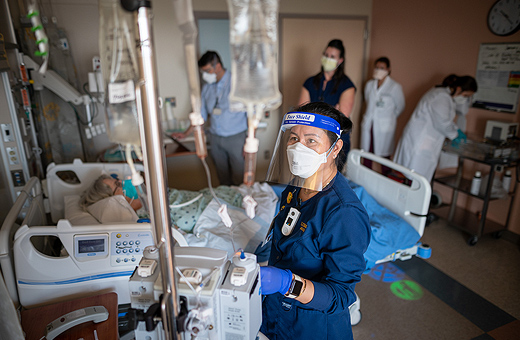
Conditioning and Infusing the CAR T Cells
You may undergo a process called lymphodepleting conditioning before you are infused with your new CAR T cells. Lymphodepleting conditioning uses chemotherapy to decrease your immune cells to make room for the CAR T cells. A few days later, we infuse you with your CAR T cells using an IV.
CAR T-Cell Therapy Side Effects
While effective, CAR T cell therapy does have potential side effects. Some can be serious, such as cytokine release syndrome (CRS). To help avoid and treat these complications early, we closely watch you both in and out of the hospital.
CRS
Sometimes, multiplying CAR T cells release proteins called cytokines. Cytokines can cause your immune system to overreact and trigger inflammation throughout your body.
Nervous System Issues
CAR T-cell therapy can cause issues in your nervous system. As a result, some may experience headaches, loss of consciousness or balance, tremors or seizures or difficulty communicating.
Other Side Effects
Other potential CAR T-cell therapy side effects include allergic reactions, low blood cell counts, too many minerals in your blood and an increased infection risk.

Ranked among the nation’s best hospitals
A U.S. News & World Report best hospital in cardiology, heart & vascular surgery, diabetes & endocrinology, ENT, geriatrics, neurology & neurosurgery, and pulmonology & lung surgery.

Ranked among the nation’s best children’s hospitals
U.S. News & World Report ranked UC Davis Children’s Hospital among the best in pediatric nephrology, orthopedics*, and pulmonology & lung surgery. (*Together with Shriners Children’s Northern California)

Ranked Sacramento’s #1 hospital
Ranked Sacramento’s #1 hospital by U.S. News, and high-performing in aortic valve surgery, back surgery (spinal fusion), COPD, colon cancer surgery, diabetes, gynecological cancer surgery, heart arrhythmia, heart failure, kidney failure, leukemia, lymphoma & myeloma, lung cancer surgery, pacemaker implantation, pneumonia, prostate cancer surgery, stroke, TAVR, cancer, orthopedics, gastroenterology & GI surgery, and urology.

The nation’s highest nursing honor
UC Davis Medical Center has received Magnet® recognition, the nation’s highest honor for nursing excellence.

World-class cancer care
One of ~59 U.S. cancer centers designated “comprehensive” by the National Cancer Institute.

A leader in health care equality
For the 13th consecutive year, UC Davis Medical Center has been recognized as an LGBTQ+ Healthcare Equality Leader by the educational arm of America’s largest civil rights organization.

